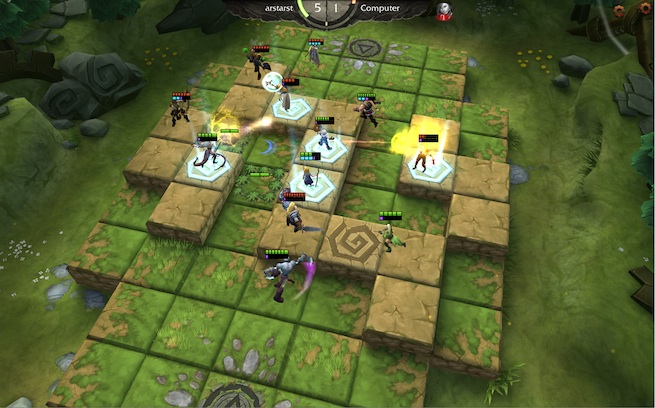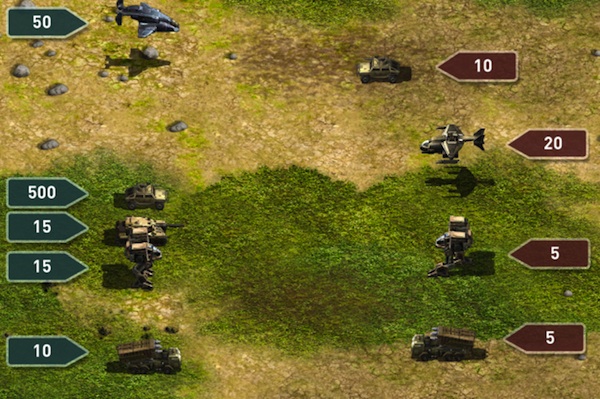War of Nations
Developer: Gree
Platforms: iOS
Release date: Out now
While War of Nations isn’t a strategy game in the tradition of a Starcraft or Command & Conqueror, building armies, researching new weapons, and fortifying bases are still integral to the gameplay. The main difference lies in the territory: You play in a world inhabited by 30,000 other players, all of whom are trying to destroy each other and take over more land — one way to do this is by spending real money for gold, which can buy things like extra commanders or items that speed up the researching and building process. Dan Chao, director of product at Gree, likes to think of War of Nations as “Civilization, but not turn-based, on a massive MMO scale.”
Everything that occurs in these shared worlds happen in real time, so if you aren’t careful, you could log in one day and find that someone has blown up everything you worked so hard to build. I found this out the hard way after not playing for almost a week — my factories, oil refineries, and other facilities were gone, as well as a secondary base I just started filling out.
“I think [the hardcore audience] was underserved at the time we started development,” said Chao. “But now there’s obviously a lot more hardcore games coming to that platform, and with the introduction of the tablet, it can just in general handle more, like a complicated hardcore game. I think that was a lot of the drive behind [War of Nations]. There’s the ability there now, and the audience is definitely there. …
“But for me, with mobile it’s kind of like — you can always expect them to shut off the device at like any time. The gameplay has to be playable in like very small bite-sized chunks, but it should also be able to scale to sit in bed for an hour or two and like play it at night.”
According to Chao, these type of games are also a result of bigger budgets and bigger teams.
“This game, and I’m sure a lot of the other games out there, was not like a simple and quick game to make, at least in terms of normal mobile development cycle,” he said. “So as you see larger companies get into the business, you’ll just see more and more of this style of game come out, like this hardcore — whether it’d be like action or strategy or whatever it happens to be — I feel like as long as it works well on mobile, the players will definitely let the companies know which ones are the successes.”
Chao has watched the hardcore audience on mobile slowly grow since his time at Funzio (which Gree acquired last year), where he was the designer behind Crime City and Modern War. At that time, there was a “large belief” that those gamers hadn’t “quite migrated over to smart phones yet.”
“So [games like Crime City] was like a first attempt to see how much strategy and how much decision-making would be digestible for the players,” he said. “And I feel like over the course of those games being out for so long, we’ve gotten like a lot better grasp on what players will think what works and what won’t.”
VentureBeat's mission is to be a digital town square for technical decision-makers to gain knowledge about transformative enterprise technology and transact. Learn More



